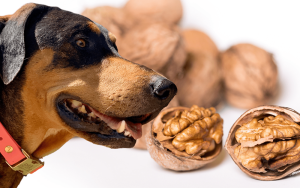Can Dogs Eat Popcorn? The Ultimate Guide to Pet Safety and Treats

Popcorn is a popular snack enjoyed by millions of people around the world, whether at the movies, at home, or as an easy-to-make treat. But when it comes to our pets, particularly dogs, we often wonder: Can they safely enjoy popcorn too? The answer is
not as simple as “yes” or “no” because there are several factors to consider when feeding your dog popcorn. This guide will explore whether popcorn is a safe snack for dogs, the potential risks, and how to make popcorn a healthy treat for your furry
friend.
Table of Contents
- Is Popcorn Safe for Dogs?
- The Nutritional Benefits of Popcorn for Dogs
- The Potential Risks of Feeding Popcorn to Dogs
- 3.1. Choking Hazards
- 3.2. Sodium and Butter Content
- 3.3. Unpopped Kernels and Digestive Issues
- How to Safely Serve Popcorn to Dogs
- 4.1. Plain Popcorn
- 4.2. Popcorn Without Additives
- How Much Popcorn Can Dogs Eat?
- Alternatives to Popcorn for Dogs
- Conclusion: Should You Give Your Dog Popcorn?
1. Is Popcorn Safe for Dogs?
The first question most dog owners ask is whether popcorn is safe for their pets. The answer depends on how it’s prepared and served. Plain, air-popped popcorn without any added butter, salt, or seasoning can be safe for dogs in moderation. However, there
are several important considerations to keep in mind.
Popcorn is made from corn kernels that expand and puff up when heated. These light, airy snacks can be a fun and enjoyable treat for your dog, but only when prepared and served properly. It’s important to avoid giving your dog popcorn with additives such
as butter, salt, sugar, or other toppings that can be harmful to their health.
2. The Nutritional Benefits of Popcorn for Dogs
While popcorn should never replace a balanced dog food diet, it does offer some potential health benefits when served properly. Here are a few of the nutritional advantages of plain, air-popped popcorn:
- Low in Calories: Plain popcorn is low in calories, making it a good option for a light, guilt-free treat.
- High in Fiber: Popcorn is a good source of fiber, which can aid in digestion and help prevent constipation in dogs.
- Rich in Antioxidants: Popcorn contains antioxidants, which can help reduce inflammation and support overall health.
- Whole Grain: Popcorn is made from whole grains, which provide a healthy source of carbohydrates and help maintain energy levels.
3. The Potential Risks of Feeding Popcorn to Dogs
While popcorn can have some health benefits, there are also potential risks that dog owners should be aware of before offering it as a treat. Let’s take a closer look at the dangers associated with feeding popcorn to dogs.
3.1. Choking Hazards
The most immediate risk of feeding popcorn to dogs is the potential for choking. Popcorn kernels that are not fully popped can be hard and difficult to chew. If a dog attempts to swallow an unpopped kernel, it could get lodged in the throat or digestive
tract, leading to choking or internal injury.
Even fully popped popcorn can pose a choking hazard, especially for small dogs or puppies. They might have trouble chewing or breaking down the popcorn, particularly if they are overly excited or eat too quickly.
3.2. Sodium and Butter Content
Many commercially available popcorn brands are heavily seasoned with salt, butter, or other flavorings, which can be harmful to dogs. Excessive salt can lead to sodium poisoning, which causes symptoms such as vomiting, diarrhea, lethargy, and even seizures
in severe cases. Butter, on the other hand, is high in fat, which can lead to weight gain, pancreatitis, and other digestive issues in dogs.
If you do decide to share popcorn with your dog, ensure that it is completely plain and free from any added ingredients.
3.3. Unpopped Kernels and Digestive Issues
Unpopped popcorn kernels can cause digestive problems for dogs. Dogs’ digestive systems are not designed to break down tough, hard materials like unpopped kernels. Swallowing them whole can lead to gastrointestinal upset, including nausea, vomiting, or
even more serious blockages in the intestines.
Some dogs may also have difficulty digesting corn in general, which could lead to gas, bloating, or diarrhea.
4. How to Safely Serve Popcorn to Dogs
If you decide to treat your dog to popcorn, it’s crucial to prepare and serve it in a safe manner. Here’s how to do it properly:
4.1. Plain Popcorn
Make sure the popcorn is air-popped and has no added salt, butter, or seasoning. You can prepare it yourself at home using a popcorn machine or stovetop. This ensures that the treat is free from harmful additives and preservatives.
4.2. Popcorn Without Additives
If you purchase pre-popped popcorn, carefully check the ingredients to ensure there are no added flavorings. The best option for your dog is plain, unseasoned popcorn. If the popcorn is flavored, it’s better to skip it altogether to avoid the risk of
harmful additives.
5. How Much Popcorn Can Dogs Eat?
As with any treat, moderation is key. While popcorn can be a healthy snack for dogs, it should only be given in small quantities. Generally, it’s best to treat popcorn as an occasional snack rather than a regular part of your dog’s diet. A handful of
popcorn (around 5-10 pieces) is sufficient for most dogs.
Larger dogs may be able to tolerate more, while smaller dogs or puppies should be given even fewer pieces. Always monitor your dog after giving them a new treat to ensure they don’t have an allergic reaction or digestive upset.
6. Alternatives to Popcorn for Dogs
If you’re looking for other snack options for your dog, there are many healthy and dog-safe alternatives to popcorn. Consider these options for variety:
- Carrot sticks: Low in calories and high in fiber, carrots are great for dogs.
- Apple slices: Rich in vitamins and low in fat, apples can be a refreshing treat.
- Blueberries: Packed with antioxidants, blueberries are a healthy snack for dogs.
- Sweet potatoes: Full of fiber and vitamins, cooked sweet potatoes are a nutritious alternative.
- Bananas: Bananas are a good source of potassium and fiber and are easy for dogs to digest.
When offering new foods, always be cautious and introduce them slowly to monitor for any potential allergic reactions or sensitivities.
7. Conclusion: Should You Give Your Dog Popcorn?
In conclusion, dogs can safely eat plain, air-popped popcorn in moderation, as long as it’s prepared without harmful additives such as butter, salt, or seasoning. However, it’s important to keep the potential risks in mind, such as choking hazards, digestive
issues, and the danger of consuming unpopped kernels.
If you decide to give your dog popcorn, ensure that it’s a special treat and not a regular part of their diet. Always keep portions small, and remember that popcorn should never replace your dog’s regular, balanced meals.
As always, when introducing a new food to your dog, consult with your veterinarian to ensure it’s a safe option for your pet’s specific needs.






